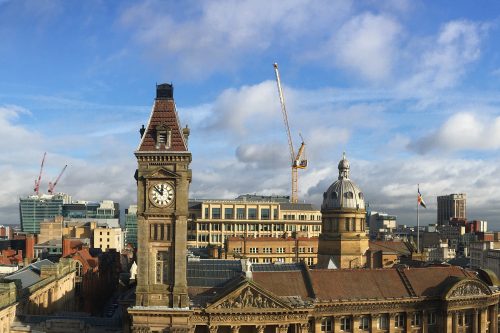Foreign direct investment projects fall across the Midlands

The slump in foreign direct investment (FDI) projects in the regions in 2018 has further stoked concerns about the UK’s ability to rebalance its economy.
The latest data from EY’s annual UK attractiveness survey has highlighted the significant fall in international investment seen in the regions. It also showed a sharp drop in the number of jobs created or secured in the region, although some of that change was due to a shift in methodology this year that counted only actual figures rather than including some estimates.
The number of FDI projects in the UK outside London fell by 20% in 2018 – higher than in any year during the last recession – as 150 fewer investments were secured than a year earlier.
But Greater London had an almost identical year, with its 458 projects just one below 2017’s total.
Mark Gregory, EY’s chief UK economist added: “The relatively strong performance of London and the South East suggests that attempts to rebalance the UK geographically may be harder to realise given the challenges posed by Brexit.”
EY’s data also highlights the growing two-tier nature of the regional economies, with the larger cities typically performing more resiliently than the rest of the region.
Birmingham had 22 FDI projects in 2018, which was one project and 5% higher than a year before, but the West Midlands without Birmingham was down 20%.
Simon O’Neill, managing partner at EY in the Midlands, said: “Whilst inward investment in the region remains high when comparing 2018 to years prior to 2015, a 12% year-on-year drop in the number of projects cannot be ignored.
“At a time when concerns over Brexit appear to be reducing the UK’s appeal currently and are hampering its ability to attract capital, it becomes increasingly important for the Midlands to play to its strengths.
“The region must continue to invest in its own future – such as working hard to attract and retain high-skilled talent and continuing to build its existing strengths in areas such as high value-add manufacturing.”
In the North West both Manchester and the region as a whole saw a significant fall in the number of FDI projects. Manchester was down 18%, although the North West excluding Manchester fell by 28%.
Across the Pennines, Yorkshire fared much worse – although Leeds was up 11%, the rest of Yorkshire plunged 56%.
“It appears that uncertainty over Brexit has not only reduced the UK’s overall appeal, but it is also having a much greater negative impact in the UK’s towns as investors concentrate on what they see as ‘safer’ investments in the larger cities,” added Gregory.
But overall the attractiveness of the UK is in decline among investors, according to a survey by EY.
It found that while 42% of investors expect the UK’s attractiveness for FDI to decline over the coming three years, only 26% of them expect it to improve – the worst-ever result in the decade that the annual survey has been running.







